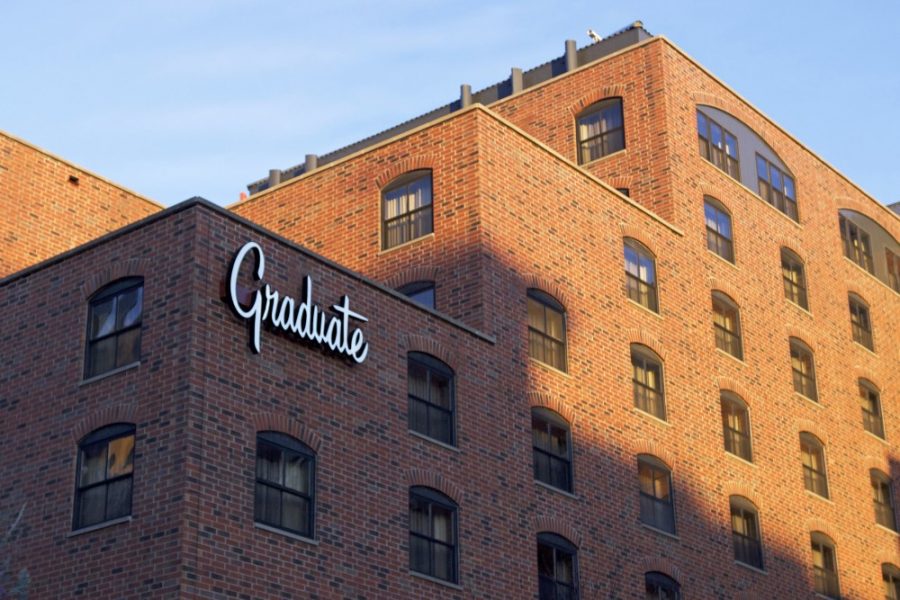When the University of Minnesota delayed opening first-year student dorms and instituted COVID-19 protocol for incoming students, the Graduate Hotel Minneapolis created a new plan to house students.
In a new program called Graduate Cares, the Stadium Village hotel is opening its rooms to students and using new cleaning and safety procedures to provide an alternative to on-campus housing. Students pay a flat rate of $1500 a month for their room, Wi-Fi and cleaning. There are currently about 40 students staying at The Graduate.
First-year student Claire Binnicker said she thinks the dorms are managing the influx of new students well by adhering to strict guidelines. However, she said she is hoping regulations loosen up by next semester. She said students play ping pong and watch movies in their buildings and are allowed to have one guest in a room at a time.
“It’s truly not that bad,” Binnicker said. “What does stink is the consequences.”
According to the Maroon and Gold Sunrise Plan, there are consequences for students who violate protocol, such as not returning to their dorms by the “back home” time.
The Graduate’s General Manager Chuck Goldberg said he understands that living on campus is part of the student experience and said he hopes the hotel can be a safe and clean alternative for students. There is contactless delivery for sheets and towels, and the Graduate is providing basic cleaning services once a week as long as students are not in their rooms.
“We do it safely for the students as well as the staff,” Goldberg said.
First-year student Dylan Haas lived at the Graduate for two weeks when the University delayed freshmen move-in dates. Haas is from Wisconsin, and he said he wanted to be in Minnesota when school started. He lived in a room in the Graduate with another student from his high school.
Haas never intended the Graduate to be a long-term option, but he said it was the best choice while he waited to see when the dorms would open. He did not know when student housing would be available, but he was still able to make some friends at the Graduate.
The Graduate placed all first-year students on the same floor, and Haas said it was a convenient way to get to know other students who had just arrived on campus. He said he still talks to some of his first friends although he no longer lives in the Graduate.
“It was easy to meet new people because everyone on the floor were freshmen,” Haas said.
The Graduate’s rooms have beds, a mini fridge and a microwave like a typical dorm room. However, the hotel does not have a dining hall like most residence halls. Its restaurants are not currently open due to the pandemic, and it is the student’s responsibility to figure out meals. Goldberg said that determining how to reopen certain facilities is a combination of logistical issues and safety concerns.
“We’re still working through how to reopen,” Goldberg said.
Haas said that accessing food was not an issue, and he ate in his room most of the time. He was able to prepare food in his room, and he sometimes used mealtimes for social gatherings.
“I would occasionally go out to eat with friends, too,” Haas said.
While many of the first-year students who initially stayed at the Graduate have now moved into dorms, Goldberg said the Graduate’s mission is being a part of the college campus and that helping out with housing has been a unique experience for the hotel chain. The future is uncertain, but the hotel will likely continue to offer options for students.
“We can have them stay with us as long as they like,” Goldberg said.


















